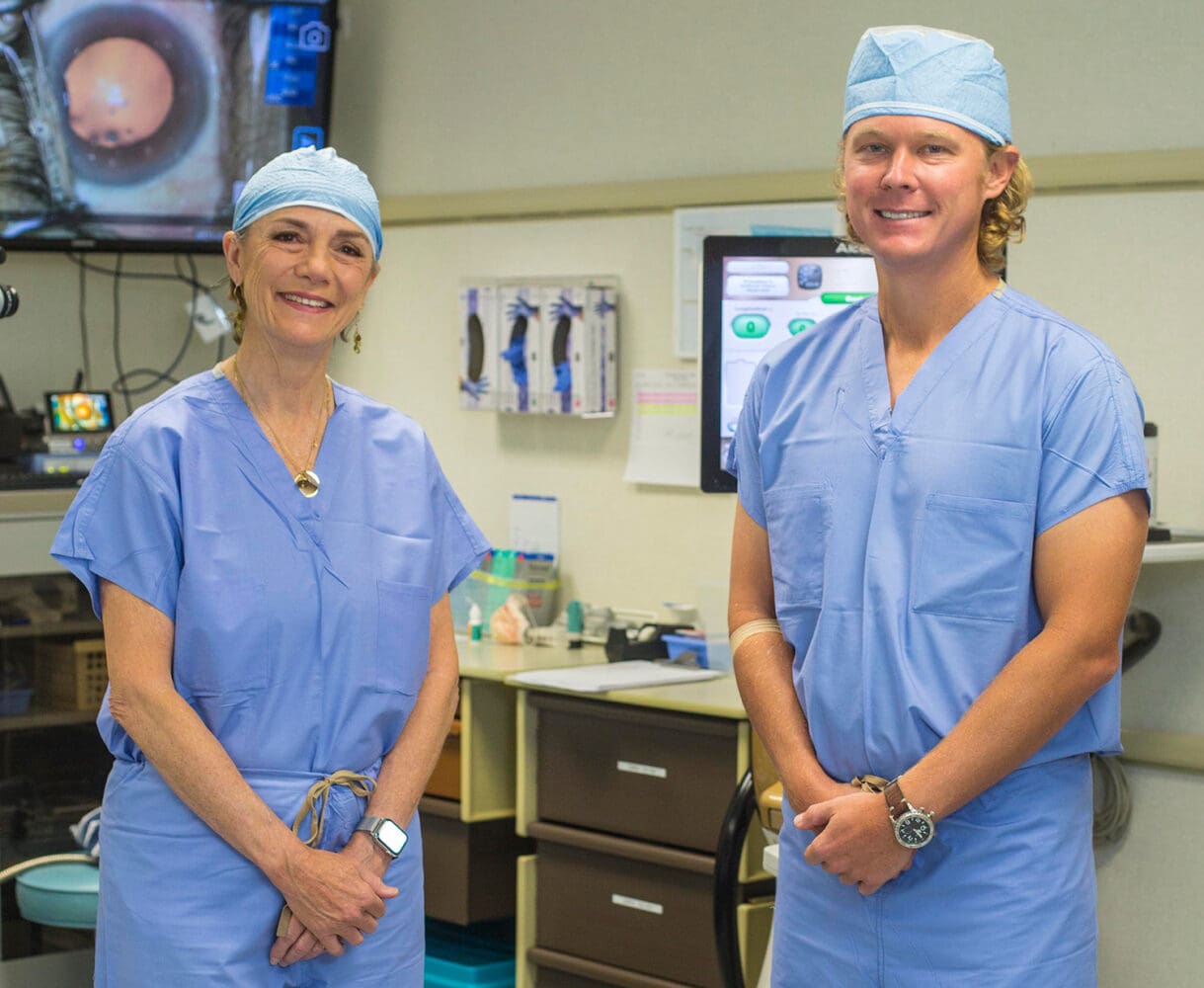
Cataracts are the number one cause of blindness in the world and result when the natural lens inside our eyes becomes cloudy. Cataracts do not go away on their own, and surgical intervention is appropriate once they become visually significant or negatively impact quality of life. With modern cataract surgery, patients can achieve not only greater clarity but reduced dependence on glasses*.
Symptoms
- Cloudy or blurry vision
- Colors look faded
- You can’t see well at night
- Lamps, sunlight, or headlights seem too bright
- Halos around lights
- Double vision
- You have to change the prescription for your glasses often
Causes
- Aging is the most common cause of cataracts.
- Diabetes, trauma, or certain medications, can result in premature cataracts.
Treating Cataracts and Surgery at Jenkins Eye Care
At Jenkins Eye Care, we take a comprehensive approach to diagnosing and treating cataracts, the leading cause of blindness worldwide. Our experienced team, led by Drs. Tyrie Jenkins and Jeffrey Peterson, provides thorough evaluations and transparent consultations to ensure you understand your treatment options.
When the natural lens within the eye becomes cloudy, it not only diminishes vision but can significantly affect your quality of life. Unlike some other eye conditions, cataracts won’t disappear on their own. Surgical intervention becomes necessary when cataracts interfere with daily activities or become visually significant.
Awareness of the symptoms is crucial for early intervention. Common signs include cloudy or blurry vision, faded colors, difficulty seeing at night, and increased sensitivity to light sources such as lamps, sunlight, or headlights. Additional symptoms may manifest as halos around lights, double vision, or frequent prescription changes for your glasses. If you experience any of these symptoms, we recommend scheduling a comprehensive eye evaluation to assess the extent of the condition.
While aging remains the most prevalent cause of cataracts, other factors can contribute to premature development. Individuals with diabetes, those who have experienced eye trauma, or those taking certain medications are at an elevated risk. Knowledge of these risk factors allows for proactive monitoring and, when needed, earlier intervention.
When it comes to treating cataracts, advancements in surgical techniques have made it possible to not only restore clarity but also reduce dependence on corrective lenses. Our state-of-the-art surgical procedures are tailored to each patient’s unique eye structure and vision needs, providing not only clearer vision but also an improved quality of life.
At Jenkins Eye Care, we are committed to offering personalized care from diagnosis through recovery. If you are experiencing any symptoms associated with cataracts or would like to learn more about modern surgical options, don’t hesitate to schedule an appointment with us.

